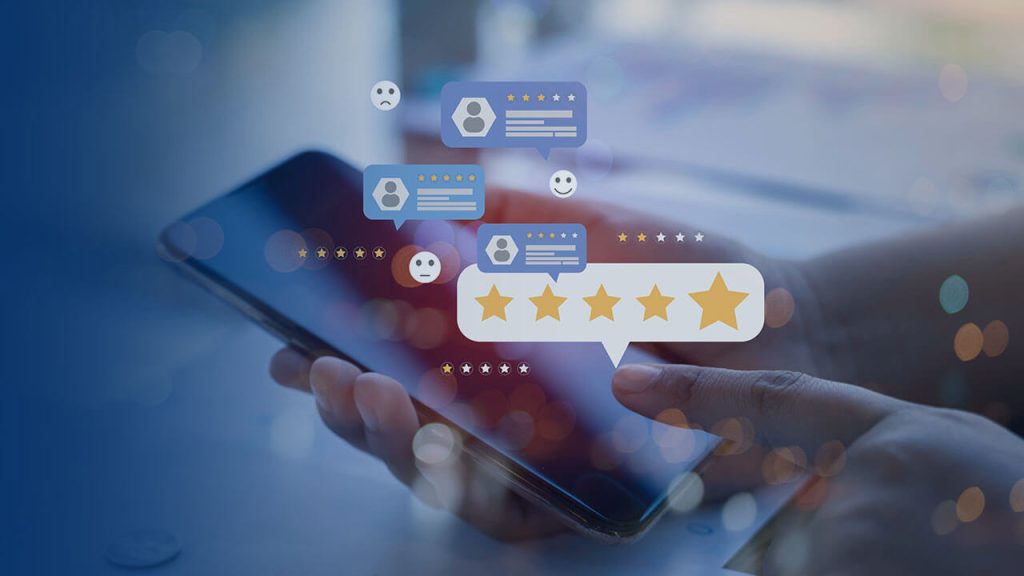Off page optimization is key for any website’s success, especially for a business like Labridge Digital Marketing. It’s all about what you do outside your site to pull in more visitors and get your site seen by more people. So, think of it as making friends across the internet that point back to you, saying you’re great. For instance, when another site links to your website, it’s like a vote in your favor in the eyes of search engines. So, more votes mean better visibility.
Also, off page optimization isn’t just about links. It’s about building a reputation that spreads far and wide. This can include being active on social media or getting mentioned on other sites. Above all, it’s a way to tell search engines and users that your site is trustworthy, valuable, and deserves to be at the top.
Therefore, for a business like Labridge Digital Marketing, focusing on these strategies is crucial. It helps in standing out and reaching more potential customers. After that, the goal is simple: to turn those visitors into loyal customers. So, remember, off page optimization is a vital piece of the puzzle in growing your online presence.
What is Off Page Optimization?

Off-page optimization is a big part of making your website popular, especially when considering SEO services in the Philippines. That is to say, it’s all about what happens outside your site that helps it rank better in search results. That is to say, it’s not just what’s on your site that counts. What others say about you matters a lot too. Therefore, for Labridge Digital Marketing, this means building a strong online presence beyond just their website.
Link Building
First off, link building is like the internet’s way of giving high-fives. It’s when other websites link back to yours. Each link is a vote of confidence. So, the more you have, the more search engines think you’re important. For instance, if a well-known blog links to Labridge Digital Marketing, it boosts its reputation.
Social Media Engagement
Also, social media is a huge deal. It’s not just for sharing photos or updates. It’s a way to interact with customers and spread the word about your website. When people talk about Labridge Digital Marketing on social media, it helps attract more visitors. Therefore, being active and engaging on platforms like Facebook and Twitter is crucial.
Reviews
After that, let’s talk about reviews. Good reviews are gold. That is to say, they tell everyone that your service or product is excellent. For Labridge Digital Marketing, positive reviews on sites like Google or Yelp can really help attract new clients. In other words, it’s a powerful form of off page optimization.
Brand Mentions
In addition, brand mentions are when people talk about your business without linking back. It’s still a big thumbs up. It shows search engines your brand is being talked about. Above all, it increases your site’s visibility and authority.

See How My Team Can Drive More Traffic to Your Website
- SEO – unlock more SEO traffic. See real results.
- Content Marketing – our team creates epic content that will get shared, get links, and attract traffic.
- Paid Media – effective paid strategies with clear ROI.
Content Marketing
Finally, content marketing is a big part of off-page optimization. It’s when you engage in content creation by creating awesome content that people want to share. For instance, it could be blog posts, videos, or infographics. The goal is to create stuff that’s so good, other sites want to link to it or people want to share it on social media.
Why Off Page Optimization Matters?
So, why does all this off page stuff matter? Because it helps search engines see that your website is a big deal. It’s not just about having great content or the right keywords. It’s also about how the rest of the internet sees you. When you do off page optimization right, it tells search engines your website is trustworthy, valuable, and deserves a top spot in search results. Therefore, for a business like Labridge Digital Marketing, focusing on these off page techniques is key to attracting more visitors and growing the business.
Difference between Off Page Optimization and On Page Optimization

In the realm of enhancing your website’s online presence, two primary protagonists emerge.: on-page and off page optimization. So, let’s dive into what makes each one special and why both matter.
What’s On Page Optimization?
Imagine you’re tidying up your room so it looks great when friends come over. On-page optimization is a bit like that but for your website. It’s all the things you do on your website to make search engines love it. This includes using the right words (keywords), making sure your site is easy to explore (like having a clear menu), and ensuring it loads fast on phones and computers. So, it’s all about making your site as welcoming and easy to read as possible.
And Off Page Optimization?
Now, think about how you make new friends or get people talking about you in a good way. Off page optimization works similarly for your website. It’s what you do outside your website to make people notice you. This could be getting other websites to link to you, having people chat about Labridge Digital Marketing on social media, or getting good reviews online. It’s like creating a buzz around your website that tells search engines, “Hey, this site is pretty cool!”
Spotting the Differences
The big difference? On-page is all about what’s on your site. You control it directly. Meanwhile, off page is about getting noticed in the wider web world. It’s about building a good reputation and getting others to give you a thumbs-up.
They Work Better Together
Both on-page and off-page optimization are best friends in the SEO world, often evaluated together in a comprehensive website audit. You need a neat and tidy website (on-page) that’s also talked about positively by others (off-page). It’s like having a great book that not only looks good but is also recommended by everyone.
Why Off Page Optimization Rocks
Focusing on off page optimization is super important, especially for businesses like Labridge Digital Marketing. It helps your website stand out, builds trust with search engines, and attracts more visitors. Therefore, by getting other sites to link to you and people talking about your brand, you’re telling search engines, “We’re trustworthy and valuable!”
The Importance of Link Building

Link building is a big deal in the world of off-page SEO. For instance, it’s like getting nods of approval from other websites, which tells search engines your site is a valuable resource. This helps your website stand out in the vast internet space.
Why Links Matter
Links are like bridges that connect different websites. When a website links to your site, it’s as if they’re saying, “Check this out, it’s good!” That is to say, search engines see these links and think your site must be important. Therefore, the more quality links you have, the better your site looks to search engines. This is crucial for any business, including Labridge Digital Marketing, aiming to be seen by more people.
Types of Links
Let’s keep things simple by looking at the main types of links:
Natural Links
These are the best kind. It’s when someone links to your site because they genuinely find your content useful or interesting. You don’t have to do anything; they naturally want to share your site.
Manual Links
These come through a bit of effort. For instance, you might ask bloggers to check out your content, hoping they’ll link back to you. So, it’s about reaching out and building connections.
Self-Created Links
These are links you make yourself, like posting your website in an online directory. They’re the easiest to get but carry the least weight with search engines.
Steps in Link Building
1. Create Share-Worthy Content
First things first, make something people want to link to. This could be a helpful guide, an entertaining video, or an insightful infographic. If it’s useful or interesting, people will naturally want to share it.
2. Familiarize Yourself with Peers in Your Industry
Start by connecting with bloggers, industry leaders, and websites that share your interests. Additionally, engage with them on social platforms, interact with their posts, and distribute their content. This builds relationships.
3. Share Your Content
Don’t keep your content to yourself. Share it on your social media channels, email newsletters, and even in relevant online communities you’re a part of. The more eyes on your content, the better.
4. Ask Nicely for Links
Reach out to people you’ve connected with and ask if they’d consider linking to your content. Be polite and direct. Also, explain why your content would be valuable to their readers.
5. Participate in Online Communities
For example, join forums, social media groups, and other online communities related to your industry. Be active and helpful, not just posting your links but genuinely engaging and providing value. This can lead to natural backlinks as people come to trust and value your input.
6. Guest Post on Other Sites
Offer to write articles for other websites in your industry. This is a win-win: they get great content, and you get a link back to your site. Also, make sure the content you provide is top-notch and relevant to their audience.
7. Keep an Eye on Your Competitors
Identify the sources of backlinks for your competitors. If there are industry blogs or directories they’re listed on, consider reaching out to those places too. This process involves comprehension rather than imitation.
By focusing on creating valuable content and actively engaging with the digital community, businesses like Labridge Digital Marketing can effectively build links. This not only helps in improving their site’s visibility but also establishes them as a trusted authority in their niche. Keep in mind, within SEO, superior quality prevails over sheer quantity.
Strategies for Effective Link Acquisition

Getting other websites to link to yours is a big win in the online world. It’s like getting a thumbs-up from them, which search engines really like. Therefore, for a business like Labridge Digital Marketing, smart link-building can make a big difference. So, here’s how to do it without getting bogged down in too much tech talk.
Guest Posting
What It Is: Writing articles for other websites in your field.
Why It Matters: It’s a win-win. You provide valuable content for another site, and in return, you get a link back to your site.
How to Do It:
- Find blogs that are a good match for your expertise.
- Offer them unique, interesting content that their readers will love.
- Make sure to include a link back to your site in a way that feels natural.
Broken Link Building
What It Is: Helping websites fix broken links by offering your content as a replacement.
Why It Matters: Websites don’t want links that go nowhere. So, offering a fix helps them and gets you a link.
How to Do It:
- Use tools to find broken links on websites you’d like a link from.
- Reach out and kindly suggest your content as a replacement.
- Be helpful and not too pushy.
Strategic Use of Infographics
What It Is: Creating visual content that other sites want to share.
Why It Matters: People love sharing visuals, and it’s an easy way for them to link back to you.
How to Do It:
- Make an infographic that’s both informative and eye-catching.
- Share it widely on social media and with websites that might be interested.
- Offer a simple way for them to embed the infographic, including a link back to your site.
The Big Picture
So, why do all this? For off page optimization, getting links from other sites tells search engines your site is a big deal. It’s about more than just showing up; it’s about being recognized as a leader in your space. Therefore, strategies like guest posting, fixing broken links, and sharing great visuals are key steps.
For a team at Labridge Digital Marketing, these approaches are just the start. They build the kind of web presence that gets noticed not just by search engines but by customers too.
Social Media’s Role in Off-Page SEO

Social media serves a purpose beyond sharing memes or reconnecting with acquaintances. Also, it plays a big part in off page optimization, helping websites get noticed by search engines and people alike. Let’s explore how social media can boost your off-page SEO efforts, especially for a business like Labridge Digital Marketing.
Boosting Visibility Through Social Shares
Why It Matters
When people share your content on social media, it gets more eyes on it. This doesn’t directly affect your search rankings but getting more traffic can lead to more links, and those links are gold for SEO.
Simple Strategy
Create content that people want to share. For instance, this could be helpful tips, stunning visuals, or fun facts. The more useful and interesting your content, the more likely it is to be shared.
Building Relationships with Influencers
Why It Matters
Influencers can amplify your reach. So, if someone with a lot of followers shares your content, it’s like getting a big shoutout. This can also lead to more followers and more shares.
How to Do It
Start by engaging with influencers. For example, comment on their posts, share their content, and be part of the conversation. After you’ve built a relationship, you might suggest a collaboration or ask if they’d be interested in sharing your content.
Increasing Brand Awareness
Why It Matters
Social media helps people get to know your brand. When they see your brand popping up in their feeds, they’re more likely to remember you. And when they need services you offer, like those from Labridge Digital Marketing, they’ll think of you first.
Simple Strategy
Be consistent with your posts. For instance, use a mix of content types, like images, videos, and text, to keep things interesting. Also, make sure your brand’s voice and style are consistent across all posts.
Engaging with Your Community
Why It Matters
Social media is a two-way street. It’s not just about broadcasting your message; it’s also about listening and responding. In addition, engaging with your audience builds trust and loyalty.
How to Do It
Respond to comments, ask for feedback, and run polls or contests. Show that there’s a real person behind the account who cares about the audience’s thoughts and opinions.
Tracking Your Success
Why It Matters
Knowing what works helps you do more of it. By tracking which social media activities drive traffic to your site, you can focus your efforts more effectively.
Simple Strategy
Use tools to see how much traffic comes from social media. For instance, tools like Hootsuite Analytics, Google Analytics and Buffer. Look at likes, shares, and comments to see what content resonates with your audience.
In the end, social media is a powerful tool for off page optimization. It helps get your content out there, builds relationships, increases brand awareness, and engages with your community. For Labridge Digital Marketing, using social media wisely is key to improving their online presence and SEO.Remember, it’s about making connections and sharing valuable content. So, get out there, be social, and watch your off-page SEO efforts soar!
The Power of Reviews and Local SEO

In the world of getting your website noticed, two big players are reviews and local SEO. They’re part of off page optimization. This means they’re about making your site look good not just to search engines but to real people too.
Why Reviews Matter
Recall the most recent instance you made an online purchase. Chances are, you read the reviews first. Reviews are powerful because they give people a peek into what it’s like to use your service or product. That is to say, good reviews build trust. They show that real people have had a good experience with your business. For a company like Labridge Digital Marketing, this trust is gold.
Best Practices for Managing Online Reviews
1. Ask for Reviews: After someone uses your service, ask them to leave a review. Make it easy for them. Send a follow-up email with a link to where they can write their thoughts.
2. Respond to Reviews: Show you’re listening. Thank people for good reviews. If there are bad reviews, respond calmly and offer to make things right. Therefore, this shows you care about your customers.
3. Share Your Best Reviews: Got a glowing review? Spread the word on your social media profiles or website. That is to say, this lets others see the good things people are saying about you.
The Role of Local SEO
Local SEO revolves around garnering attention from individuals within your vicinity. When someone searches for a service you offer, you want your business to pop up, especially on maps and local search listings. For instance, it’s like putting up a digital billboard in your town.
Making the Most of Local SEO
1. Claim Your Business Listings: Websites like Google My Business and Yelp allow you to create a listing for your business. This is step one in local SEO. So, make sure your info is correct and up-to-date.
2. Use Local Keywords: In your website content, include keywords that mention your city or region. Keyword research can help identify your desired keywords. Therefore, this helps search engines understand where you’re located.
3. Encourage Local Backlinks: A backlink is when another website links to yours. If local blogs or business directories can link to you, that’s great for local SEO.
4. Keep Your NAP Consistent: NAP stands for Name, Address, Phone Number. Also, make sure this information is the same everywhere it appears online. This helps search engines see your business as reliable.
Why It All Matters
For off page optimization, reviews, and local SEO are huge. They help people trust your business and make it easier for locals to find you. In other words, this can lead to more traffic and customers. For Labridge Digital Marketing, focusing on these areas means they’re not just another digital marketing agency. They’re a trusted part of the community.
Reviews and local SEO can really boost your off page optimization efforts. They make your business more visible and more trusted. Start by managing your online reviews and optimizing for local search. These steps can make a big difference in how well your site does in search rankings and how people see your brand.
When people talk about your brand online, whether they link to your website or not, it’s like a nod of recognition in the vast digital world. For Labridge Digital Marketing, such mentions can be a game-changer. Let’s dive into how these mentions impact SEO and ways to increase your brand’s visibility online.
Brand Mentions and Their Impact

The Impact of Brand Mentions on SEO
Brand mentions come in two types: linked, where your brand is mentioned with a hyperlink to your website, and unlinked, where your brand is mentioned without a link. Both are valuable.
Linked Mentions
Linked mentions are direct invitations for people to visit your site. They’re clear signals to search engines that your site is credible and worth checking out. This can boost your site’s ranking in search results.
Unlinked Mentions
Unlinked mentions, on the other hand, might seem less valuable at first glance since there’s no direct link to your site. However, they still play a crucial role. They increase brand awareness and help search engines recognize your brand as an entity. This recognition can indirectly improve your SEO by making your brand more visible in search queries related to your business.
Strategies to Increase Brand Visibility
Boosting your brand’s visibility online requires a mix of creativity, consistency, and engagement. Presented are several strategies worth contemplating:
Engage on Social Media
Social media is a powerful tool for getting your brand mentioned. Engage actively with your audience. Post content that encourages interaction, such as questions or polls. The more people talk about your brand, the better.
Create Shareable Content
Content offering valuable insights tends to be shared more frequently. Whether it’s informative blog posts, engaging videos, or eye-catching infographics, make sure your content solves problems or answers questions. This not only increases the chances of getting linked mentions but also boosts unlinked mentions as people talk about your content across various platforms.
Partner with Influencers
Influencers can amplify your brand’s reach. By partnering with influencers in your niche, you tap into their audience, leading to more brand mentions. Choose influencers whose values align with your brand for authentic collaboration.
Monitor Your Brand Mentions
Keep an eye on where and how your brand is mentioned online. Tools like Google Alerts or Mention can help you track both linked and unlinked mentions. This not only allows you to see the impact of your efforts but also to engage with those mentioning your brand, building relationships and potentially encouraging more mentions.
Participate in Community Discussions
Whether it’s forums, industry groups, or comment sections on relevant websites, actively participating in discussions can get your brand noticed. Offer helpful advice without overtly promoting your brand. Over time, this can lead to natural brand mentions as people recognize your expertise.
For businesses like Labridge Digital Marketing, understanding the power of brand mentions is crucial for off page optimization. Both linked and unlinked mentions have their roles to play in boosting SEO. By engaging with your audience, creating shareable content, partnering with influencers, monitoring mentions, and participating in discussions, you can increase your brand’s online visibility and, as a result, its SEO performance.
Content Marketing and Off-Page SEO

In the digital marketing world, content is king. But it’s not just about what you publish on your site; it’s also about how your content is shared and talked about across the web. This is where off-page SEO comes into play, especially for a business like Labridge Digital Marketing aiming to make a splash online.
The Magic of Shareable Content
Creating content that people want to share is like striking gold in off-page SEO. When your articles, videos, or infographics are shared, they earn backlinks (other websites linking to your content), and generate social media buzz. This not only brings more visitors to your site but also signals to search engines that your content is valuable, boosting your site’s ranking.
Simple Steps to Shareable Content
- Know Your Audience: Understand what interests your audience. What do they want to learn about? What problems can you help them solve?
- Create with Quality in Mind: Every piece of content should offer value, whether it’s teaching something new, solving a problem, or entertaining.
- Make It Visually Appealing: Use images, infographics, and videos to make your content more engaging.
- Encourage Sharing: Include social sharing buttons on your content, and don’t be shy about asking your readers to share.
Content Strategies That Boost Off-Page SEO
Your content marketing strategy should aim to not only attract attention but also encourage sharing and linking. Below are some tactics that may prove beneficial:
Leverage Trending Topics
Jump on current trends related to your industry. Content that’s timely and relevant gets shared more often.
Use Data and Research
Original research, surveys, and in-depth reports can position your brand as an authority, making others more likely to reference and link to your content.
Guest Blogging
Writing for other reputable sites in your industry can directly introduce your brand to a new audience and earn valuable backlinks.
Create Comprehensive Guides
Ultimate guides that cover a topic thoroughly are link magnets. They’re the resources people refer to again and again.
Building Success in Content Marketing and Off-Page SEO
To turn your content marketing efforts into off-page SEO success, follow these steps:
- Content Creation: Start with in-depth research to create content that’s better than what’s out there. Think quality over quantity.
- Promotion: Once your content is published, promote it through your social channels, email newsletters, and by reaching out to influencers who might find it valuable.
- Engagement: Engage with those who comment on or share your content. Building relationships can lead to more shares and links in the future.
- Monitoring: Use tools to monitor mentions of your brand and content. This can provide insights into how well your content is performing in terms of off-page SEO.
- Adjustment: Based on your findings, tweak your content strategy to focus on what works best for your audience and your off-page SEO goals.
For businesses like Labridge Digital Marketing, integrating content marketing with off-page SEO efforts can significantly boost online visibility and authority. By creating valuable, shareable content and promoting it strategically, you can earn backlinks, enhance social media buzz, and ultimately improve your site’s ranking in search results. Remember, success in off-page SEO through content marketing isn’t overnight. It’s about consistent quality and engagement over time.
Tracking and Measuring Off-Page SEO Success

In the digital world, understanding the impact of your off-page SEO efforts is crucial. It’s not just about doing the work; it’s about seeing how well it’s working. So, let’s break down how to keep an eye on your progress and make smart decisions based on what you find.
Key Metrics to Watch
When it comes to off-page SEO, there are a few important metrics that can help you gauge success:
1. Backlinks
Why They Matter: Backlinks are like votes of confidence from other sites. The greater the number of endorsements from reputable websites, the more favorable your website appears to search engines.
How to Track: Use tools like Ahrefs, Majestic, or Moz’s Link Explorer. They can show you how many backlinks you have and their quality.
2. Brand Mentions
Why They Matter: Even if a site talks about your brand without linking back, it’s still good for your off-page SEO. It shows search engines your brand is being discussed.
How to Track: Tools like Google Alerts or Mention can notify you whenever your brand is mentioned online.
3. Social Shares
Why They Matter: When people share your content on social media, it doesn’t directly affect your SEO rankings but indicates your content’s quality and popularity, which can lead to more backlinks and mentions.
How to Track: Most social media platforms offer analytics to show how often your content is shared.
Tools for Measuring Off-Page SEO
To get a comprehensive view of your off-page SEO performance, consider using a combination of the following tools:
- Ahrefs: Great for backlink analysis and tracking your website’s link profile over time.
- Google Alerts: Simple and free way to monitor brand mentions across the web.
- BuzzSumo: Useful for tracking content performance and social shares.
- Majestic: Offers detailed reporting and analysis on your site’s backlinks and the overall health of your link profile.
Adjusting Strategies Based on Analytics
Once you have your data, what next? Here’s how to use this information to tweak your off-page SEO strategies:
If Backlinks Are Low…
Strategy Adjustment: Increase efforts in guest blogging or creating shareable content like infographics. Engage in community forums or Q&A sites to increase visibility and potential for backlinks.
If Brand Mentions Are Few…
Strategy Adjustment: Boost your brand’s presence on social media. Collaborate with influencers or run social media campaigns to get people talking about your brand.
If Social Shares Are Lagging…
Strategy Adjustment: Re-evaluate the content you’re producing. It may not be striking a chord with your target audience. Try new formats or topics that are more likely to be shared.
Tracking and measuring the success of your off-page SEO is a continuous process. It’s about setting goals, implementing strategies, measuring results, and then adjusting based on what you learn. For Labridge Digital Marketing, staying vigilant in monitoring these metrics means they can keep improving their off-page SEO game, driving more traffic, and building their brand’s online reputation.
Conclusion
In wrapping up, off page optimization is a cornerstone of SEO that can’t be overlooked. For a company like Labridge Digital Marketing, mastering it means building a strong, trustworthy online presence. It’s all about getting the world to recognize and talk about your brand, whether through links, mentions, or social shares. Remember, SEO isn’t just about what’s on your site. It’s also about how your site fits into the wider web. So, focus on building relationships, creating great content, and staying active online. This way, off page optimization will boost your visibility and help your business grow.
FAQs
What’s off page optimization?
It’s all the stuff you do away from your website to help people find you on search engines. This includes getting other websites to link to you, being active on social media, and getting mentioned by others.
Why do we need off page optimization?
It helps your website look good to search engines, showing them that people think your site is useful and worth visiting. This can make your website show up higher in search results.
How does getting links from other sites help?
When other websites link to your site, it’s like they’re saying your site is worth checking out. Search engines see this as a thumbs-up and might show your site higher in search results.
Does sharing stuff on social media help my website’s search ranking?
Directly, no. But the more people see and share your stuff on social media, the more likely it is that someone will link to your site, and that does help your search ranking.
What’s the best way to handle online reviews?
Encourage happy customers to leave good reviews, always say thanks, and learn from any not-so-good feedback. Good reviews can make your business look great to both people and search engines.
How is local SEO different from regular SEO?
Local SEO is about making sure people nearby can find you when they’re looking for what you offer. This means showing up in local search results and on maps.
What’s the difference between a natural link and one I ask for?
A natural link is when someone links to your site because they genuinely like your content. An asked-for link is when you reach out and try to get someone to link to your site.
How can I tell if my off-page SEO is working?
Use online tools to see how many other sites are linking to yours, if people are talking about your brand, and how your social media posts are doing.
Why are brand mentions important even if they don’t link to my site?
Even if people talk about your brand without linking to your site, it tells search engines your brand is getting noticed, which can help your site’s visibility.
When should I change my off-page SEO strategy?
Keep an eye on how well your off-page SEO efforts are going and be ready to try new things if you’re not seeing the results you want. Sometimes what worked before might need a tweak or two to keep things moving in the right direction.